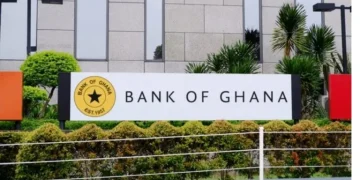More Than 3 Million Ghanaians Currently Using Virtual Assets — BoG Report Reveals
More than three million Ghanaians are currently users of virtual assets, with about 100 Virtual Asset Service Providers (VASPs) operating within the country, according to the Bank of Ghana (BoG).
The figures were disclosed in the Bank’s Policy Position on Virtual Assets and Service Providers (VASPs) document sighted by NorvanReports.
Rising Adoption and Risk Concerns
A 2024 National Anti-Money Laundering, Countering the Financing of Terrorism and Proliferation Financing (AML/CFT/CPF) Risk Assessment of Ghana revealed that virtual assets have gained significant traction across the financial sector, particularly in banking and securities.
The assessment further found that VASPs in Ghana currently provide exchange, wallet management, custody, and transfer services for virtual assets with minimal regulatory oversight. However, the Bank warned that the unique characteristics of these technologies make them vulnerable to misuse for money laundering and terrorist financing.
Regulatory Response and Policy Shift
The Central Bank, expressing concerns about consumer protection, market integrity, and financial stability, noted that virtual assets are not legal tender and remain outside the scope of the Payment Systems and Services Act, 2019 (Act 987).
Both the BoG and the Securities and Exchange Commission (SEC) have previously cautioned the public against investing in or trading virtual assets. Following these warnings, the Bank directed regulated financial institutions to avoid facilitating virtual asset transactions through their platforms.
However, in a notable policy shift, the BoG issued Draft Guidelines on Virtual Assets in August 2024—signaling its intention to develop a comprehensive regulatory framework for the sector.
Toward a Risk-Based Regulatory Framework
While Ghana currently lacks a dedicated legal regime for VASPs, the Bank of Ghana has conducted a risk assessment and registered operators within the space, laying the groundwork for structured oversight.
According to the Central Bank, there are three broad policy options for regulating virtual assets being: an outright ban; the development of a regulatory framework; or maintaining limited or no virtual asset-specific regulation.
Ghana has, however, opted against a ban, in line with Financial Action Task Force (FATF) guidance, which cautions that prohibition could push activity underground and heighten illicit finance risks.
Instead, the country is pursuing a risk-based regulatory approach that seeks to harness the benefits of blockchain and digital assets, such as promoting financial inclusion, improving remittance efficiency, and driving innovation while safeguarding monetary stability, protecting consumers, and preventing financial crimes.








